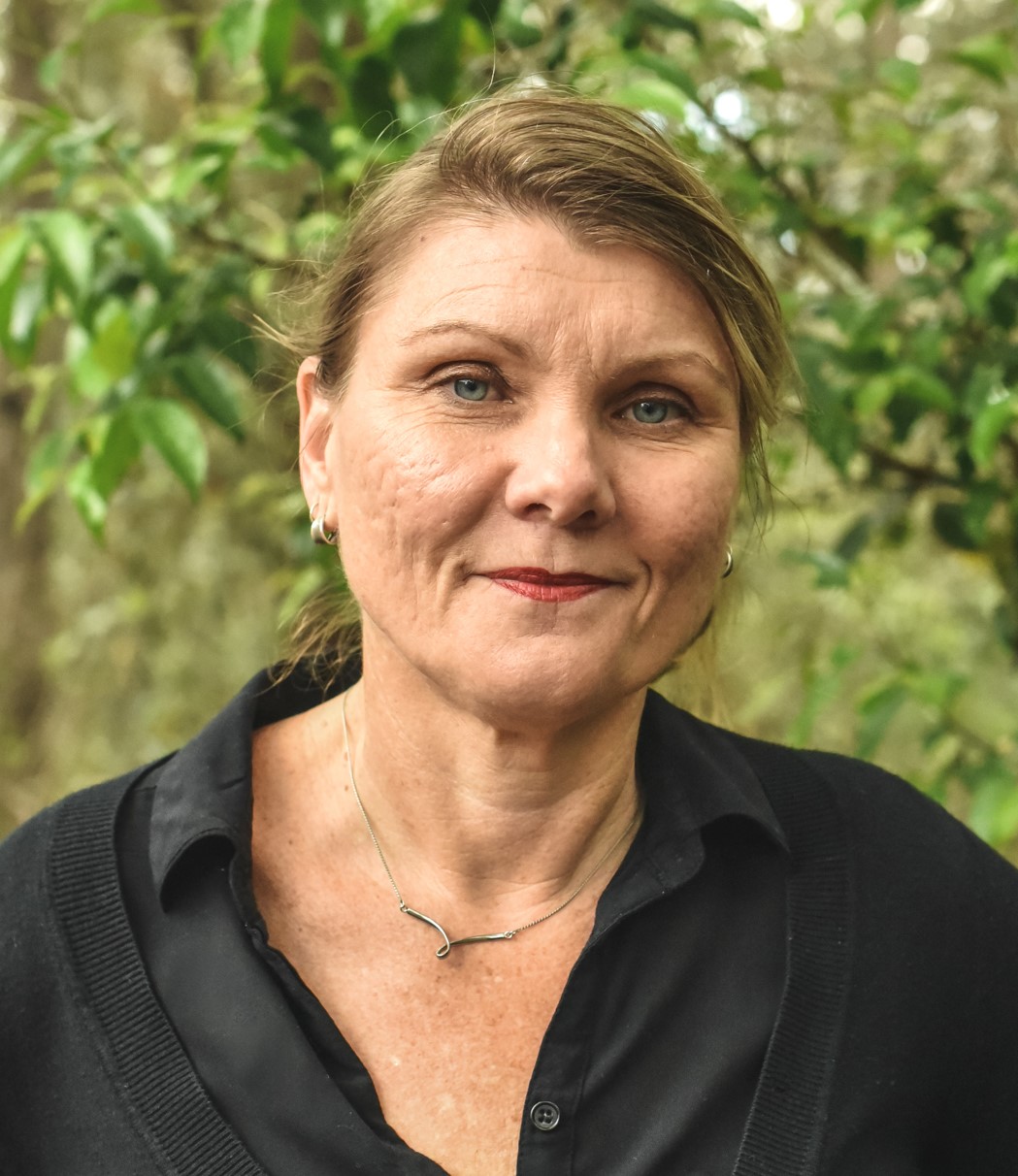Here comes 2023
Every year we ask academics across Griffith University about what they see as the key trends that will shape our workplaces and thinking in 2023.
This year the mood is complex. Our contributors know that tough times are still to come in 2023. Climate change and our ability to act and be accountable are concerns at the top of the list. However, moving into 2023 will be made a lot easier with a little bit of self-care and support for those close to us and those we work with. Remember, we all have a purpose (ikigai) and a role to play in whatever comes our way in the new year.

Professor Donna Pendergast
Head and Dean, School of Education and Professional Studies
Finding your ikigai
As we emerge from the challenges and messiness of 2022, we are coming to terms with the reality that recent global crises have disrupted our workplaces permanently – and there is no snapping back.
The popular Japanese concept of ikigai is the notion of finding one’s purpose, and that applies to all. In this context, four big trends for 2023 are: the continued conversations around work locations and expectations, with a shift towards personalised negotiations; a focus on environmental sustainability and ethical considerations as key influencers; prioritising individual and community wellbeing as a central concern; and, the continued implementation of digitisation and AI, offering unexpected ways of working.
There are of course other trends. Perhaps all of these can be wrapped up in the megatrend of loss of boundaries and enclosures that typically serve as delineation of our personal and professional lives. Our yearning for flexibility and the heightened access to resources that enable this, mean that we must intentionally focus on balance, hence, 2023 will be a year to rebalance and find your ikigai.
Leading through ambiguity
Certainty and volatility are incompatible. The world we find ourselves in, is never going to give us certainty. We must learn how to manage difficulties and emergent problems by creating a spirit of experimentation and learning. Clarity is an illusion created by people who want to believe that the hierarchy and the institutions of this world can provide certainty. They can’t.
However, incrementally, I believe the world throughout 2023 will slowly move towards a more grass roots idea of leadership, in which people will be allowed to experiment, grow and learn instead of having somebody looking over the shoulder with key performance metrics.
This will not be a major step change, but if we are to tame uncertainty, we need to release our people to do the work that we are paying them to do and give them the freedom and space to figure it out for themselves. We cannot grow while we have a figure sitting over us, telling us exactly what we should be doing. In 2023 we will need the freedom to learn and explore so that we can tame ambiguity as it emerges in our day to day lives.
Associate Professor Luke Houghton
Department of Business Strategy and Innovation

Mr. Iain MacKenzie
Professor of Practice in Disaster Management
Will it be unprecedented or just unimagined?
It seems that every day brings news of another “unprecedented” disaster somewhere in the world. They may well be unprecedented, but so what?
We know climate change is causing severe weather events to be more frequent and more intense and, thanks to social media, more publicly debated. Some events, like the flooding events of this year are at record levels. But the fact we don’t have records doesn’t mean they should be unexpected or not planned for. The consequences of these events are largely due to what we, as humans have done. We have built in harm’s way; we live, work and holiday in harm’s way.
‘Unprecedented’ should not be an excuse for unimagined or unprepared.
In 1859 Richard Carrington watched a sunspot on the sun suddenly become very bright, less than 18 hours later a geomagnetic storm impacted earth, telegraph lines and other ‘electronic’ infrastructure were destroyed. Imagine if this ‘Carrington’ event occurred today… no phone, no internet, no electricity, no connectivity, no GPS, disrupted supply chains... the list goes on. How would we cope?
2023 needs to be a year of imagination, a year of planning, not waiting for the ‘unprecedented’ to occur and wondering what just happened?
Buckle up and hunker down
I don’t know anyone who isn’t exhausted and burnt out by 2022. And I don’t think this will change soon. History proves it: the Black Death in the 14th century destroyed not just the world’s population but also the feudal social system, the social hierarchy, and increased scepticism in authority. COVID-19 and climate change are fundamentally redefining how we work and live, where we work and live, and what we expect from our leaders. We will have to continue adapting to these changes and it will be exhausting. Humans are not good at change. We resist it or are slow to make it.
Pessimistically, I think there will be an increasing shift to adapting to climate change rather than trying to prevent it, but the actions we need to take will be slow and incremental and dictated by the interests of government, big business and corporations and the fossil fuel industry (COP27’s ‘sorry for your loss, have some money’ fund).
Optimistically, I hope change will continue to grow and have increasing impact at a local level but this will require fundamental systems changes to better facilitate improvements to our working and social lives. Our expectations around working from home, for example, will need to be met with a capacity for organisations and governments to facilitate this – technologically, psychosocially, and literally. People can’t work from home if they don’t have one or expect to lose it at any moment. We’re all going to need to buckle up and hunker down.
We will eventually get to some kind of equilibrium but it’s going to be a tough ride.
Dr Saffron Benner
Manager, Sustainability Office

Professor Ingrid Burkett
Griffith Centre for Systems Innovation Co-Director
Impact will be more than a buzz word
‘What’s our real impact?’ This is a question many of us will be asked and be asking in workplaces in 2023. Some, like venture capitalist, Sir Ronald Cohen are suggesting that we are at the beginning of an ‘impact revolution’. For others, impact has become little more than a buzz word which is code for looking good whilst changing nothing. In 2023 things are going to get real for impact in three ways.
First, we have goals and anchors that give ‘impact’ shape. The UNs Sustainable Development Goals are increasingly recognised as key direction setting goals for creating impact across sectors; and the growing alignment between standard setters (the Sustainability-related Standards being developed by the International Sustainability Standards Board (ISSB) and the Global Reporting Initiative (GRI) Standards) are creating strong foundations of depth and rigour when it comes to impact activity and reporting across sectors.
Second, there are moves afoot to regulate disclosure and reporting which will start a new global debate around impact in 2023. From 2023 the EU will put in place legislation that will require all large companies operating in the EU to disclose and provide data regarding both their impact on people and the planet, and any sustainability risks related to their operations. This is likely to provide a foundation for similar regulatory action around the world.
And finally, a growing support for ‘stakeholder capitalism’ to challenge shareholder primacy is underpinning a shift beyond ‘do-no-harm’ impact reporting (eg. Net Zero and modern slavery protection across supply chains) towards a regenerative impact focus - asking ‘what positive impacts are we creating, generating, investing in’ that will benefit current and future generations and ecosystems’?
Historically ‘impact’ started as a verb - we are ‘doing’ impact; rather than as a noun - our impact. And it is the verb form that we will hear more about in 2023. We’ve all seen far too much ‘green washing’ or ‘pink washing’ with companies declaring their ‘impact’ in shiny ESG reports. In 2023 we will see more of what companies, governments, civic organisations are actually ‘doing’ - how their actions are really impacting on people, places and the planet, and they will increasingly be asked to demonstrate that impact.
Professional Learning Hub
The above article is part of Griffith University’s Professional Learning Hub’s Thought Leadership series.
The Professional Learning Hub is Griffith University’s platform for professional learning and executive education. Our tailored professional learning focuses on the issues that are important to you and your team. Bringing together the expertise of Griffith University’s academics and research centres, our professional learning is designed to deliver creative solutions for the workplace of tomorrow. As 2021 draws to a close now is the time to get a head start on your professional development needs for the coming year. Whether you are looking for opportunities for yourself, or your team we have you covered.
Contact us on 07 3735 2208

